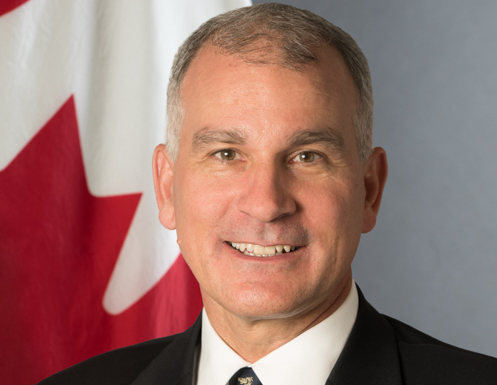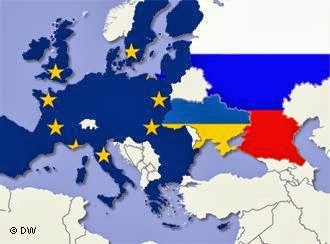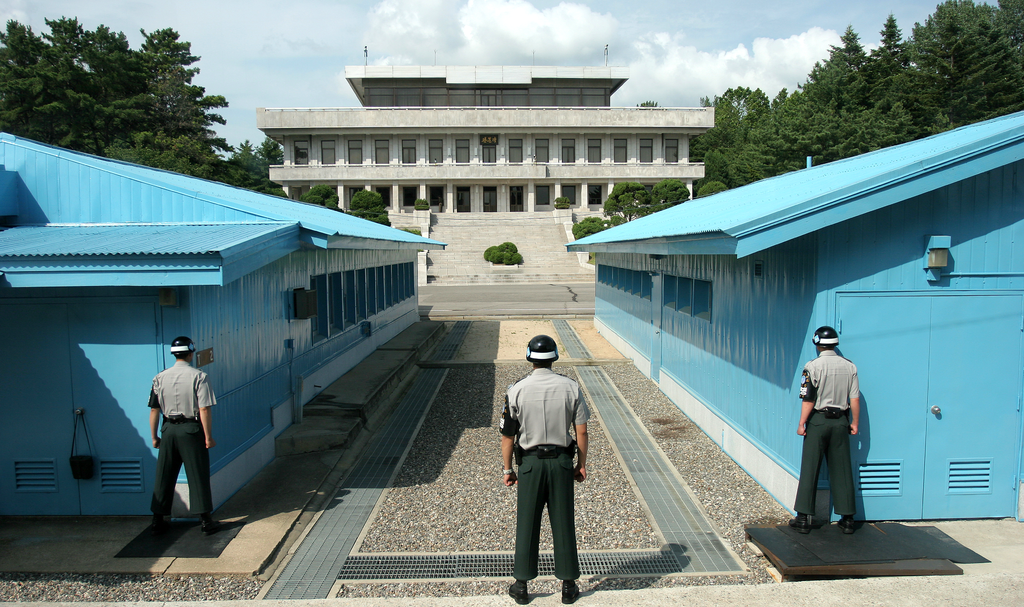H.E. Daniel Costello is currently Canada’s Ambassador to the European Union. He received his Ph.D. from the University of Massasschusetts-Amherst in 1995, and after teaching for a few years, began his career in public policy. After joining Foreign Affairs Canada in 2005, he served in various senior roles including as Canada’s Ambassador to Poland with concurrent responsibility for Belarus from 2009 to 2012, and as Associate Assistant Deputy Minister for Global Issues, Strategic Policy, Europe and the Middle East in 2013. Immediately prior to being appointed Ambassador to the EU, he was the Assistant Deputy Minister for Europe, Middle East and Maghreb in Global Affairs Canada from 2013 to 2015.
In this interview, Ambassador. Costello speaks to Michele Di Leo about his career development, and how Canada-Europe relations will evolve with CETA and the changing political landscape in Europe.
Could you start by talking to us about your personal and educational background?
DC: I went to high school in Ottawa and I went to McGill for undergraduate studies. I also have a Ph.D in Philosophy from the University of Massachusetts-Amherst because I thought I wanted to be a teacher and a researcher. I did my best at research and I taught for a few years at university, but I was later offered work in government, and I have been very lucky in that next career choice.
You have extensive experience in domestic public policy. Why did you transition to international affairs and diplomacy?
DC: I’d like to be able to tell you that I was following a well-considered plan but that’s absolutely not true [laughs]. I believe that at one level, life is a series of accidents, so it’s very important just to show up and be open to the opportunities that present themselves. My initial government work in domestic policy led me, through the people I met and the exposure and discussions along the way, into foreign affairs, trade and development policy. I think that all public policy, whether local or international, is interconnected. In working first on social policy and since, I’ve always sought to understand the broader context in which we’re working and the various forces and interests at play. I guess that continual interest in backing up and looking at a broader frame steered me toward international affairs and global issues.
What were some of the previous capacities that you served in during your early diplomatic career?
DC: I worked in Ministers’ offices, which together offered a great sense of the pressures and demands and the daily tempo and needs at that level, which drives the work of so much of the department and network. I served in Federal-Provincial Territorial Relations, where I became aware of the significant role that Canadian provinces play internationally, and how we all benefit when our levels of government work to collaborate and advance together our shared interests abroad. I also worked in policy planning, looking ahead at global trends and their likely impacts for our goals and interests, though I think I’ve most loved working in the geographic sector at headquarters, where by region and country we support bilateral relations and the work of our mission network – it’s the next best thing to being out there.
What advice would you offer to those interested in pursuing a career in diplomacy or public policy?
DC: I can only speak to my own experience and say that I think it’s best not to over-plan: the world belongs to those who show up. There are many ways to careers in diplomacy, and there are many different kinds of careers that will enable you to live and work abroad or on global issues if that’s really what you aspire to do. If you grab hold of opportunities as they present themselves and stick with what makes you happy and enthusiastic about doing it, then international affairs or diplomacy are likely to find you. Some might say you need a specific educational background, or forms of experience, but I don’t agree. I’ve become over the years a bit of a fatalist because my career path really only took hold and worked out well when I stopped planning it!
You were the Canadian Ambassador to Poland from 2009 to 2012. What were some of the important policy issues that you dealt with during this time?
DC: Like colleagues at all of our European posts, I worked on a wide range of issues, for instance, to support security and democratic development in Eastern Europe, to expand bilateral trade and investment by promoting commercial opportunities, and of course also to advance Canadian interests at the EU level, which included advocating for progress on CETA, our comprehensive economic and trade agreement. I recall, too, that Poland was at the time seeking to improve its energy security by modernizing its regulatory frameworks to advance the development of its domestic energy resources. We recognized very quickly that we had complimentary capabilities and interests. With Canada an active and important player across the energy mix, Poles were eager to learn of our experience at all levels of government in developing regulatory frameworks for responsible resource development, and we had many Canadian companies active in the Polish market seeking partners and to expand their investments.
Why should Canadians be receptive to CETA, especially when many people are becoming hesitant about globalisation?
DC: Because it gives them preferential access to the world’s largest market and biggest importer of goods and services in the world. I think Canadians recognize that our prosperity is closely linked to trade and that we have an interest in defending open societies and markets, especially in a time of broad protectionist sentiment. The EU is an enormous and important partner, and CETA will give us access that others will not have. In fact, we’ll be the only G7 country to have such preferential access to both the EU and the US, two of the world’s largest economies. For a country like Canada, which is a trading nation, it will be great not just for trade in goods and services to support jobs and growth, but also for two-way investment and for partnerships to support innovation and competitiveness.
What actions are being undertaken to ensure that this trade agreement will not negatively affect vulnerable workers?
DC: We see CETA as a progressive trade agreement that raises the bar and establishes new elements that haven’t been seen previously in trade agreements. A number of elements flow from the important principle that economic gains will not come at the expense of democracy, the environment, workers’ rights, or health and safety for consumers. There is a clear recognition of the government’s right to regulate in the public interest, for instance, to maintain quality public services for its citizens. Explicit clauses state that parties will not lower standards to attract trade and investment. We want this to be about inclusive growth and we want to combine it with domestic policy supports to mitigate any potential adverse impacts of trade.
Just looking at the upcoming European elections, especially the French Presidential election, are you worried about European unity amid the rise of far-right political parties?
DC: This past year has been a dramatic year. Few expected the results of the UK Referendum, or the U.S election. As we look ahead to the big European elections this year, there are certainly reasons to be concerned about continuing strains on European unity. If we consider the impacts of the many crises of recent years, from the Eurozone debt crisis and the war in Ukraine to the terror attacks and the mass arrivals of refugees, Europe has been hit with a lot of adversity in a short stretch. It is important to step back, however, and recall that despite the challenges Europe is facing and despite its constraints and design flaws, the EU remains the greatest achievement of the last century for global peace and security. We also need to recall the importance to us all of the fundamental values that Europe represents and promotes globally, including human rights, democracy and the rule of law. It remains a fundamentally important partner for Canada.
How was the Mission of Canada to the European Union involved in assisting the European Union through the refugee crisis?
DC: Though Canada is far away and built in a very different historical and geographic context, Europeans saw what we did and most I would say were lifted up by our example. Here in Brussels we have made ourselves available everywhere we can to representatives of the EU institutions and member states to share our experience with refugee resettlement, and particularly with some of its lesser known aspects like the private sponsorship program and our locally-driven integration efforts, as well as our broader rules-based approach to managed migration, which includes economic and family-class immigration. Of course some here are not interested and cite their own distinct conditions, which is fair, but many are deeply interested in learning from and applying elements of our longstanding and significant experience.
Especially looking at the terrorist attacks which took place in Europe last year, how can Canada juggle the question of respecting human rights, but ensuring that citizens are protected at home from possible terrorists?
DC: We have to do both, and we are in fact pretty good at doing both. We have a fundamental responsibility for the safety and security of our country, but we also are committed to upholding the highest global standard of human rights and wherever possible seeing them upheld and expanded around the world. It is striking that many of the attacks here, as in Canada, have not been from foreign visitors or immigrants or refugees but from homegrown attackers. That is a sobering reality, which of course means that we all have work to do at home and in our communities to address radicalization and the conditions that support it.
Even though NATO and the European Union are separate institutions, what are some critical projects that they are working on together?
DC: They are natural partners. NATO focuses on collective defence and the military end of things, while the EU has capabilities and long experience addressing a broader range of elements of the conflict cycle that need to be addressed, from conflict prevention to crisis management and post-conflict stabilization, which all tend to involve important civilian capacities, particularly in various areas of governance. There is also a lot of NATO-EU cooperation on threat assessment in various countries that face a potential breakdown of order. There is even operational cooperation underway in the Mediterranean and the Aegean Sea where NATO is working very closely with the EU in early identification and prevention of many dangerous passages across.
Canada is a NATO country and an EU ally. Can you speak on the relationship between Canada and the EU?
DC: The Canada-EU relationship is of fundamental importance. As we have seen repeatedly over the years, our security is bound up with European security. Our prosperity is closely tied to European prosperity, and this will only be more so with the coming into force of our CETA agreement. The EU also remains a key partner on all the values that we cherish and we would like to spread to other parts of the world where we know they are not taken as seriously as they should be. The European Union is the biggest market in the world, the biggest research funder in the world, the number one donor of humanitarian and development assistance, and a key diplomatic player on important global issues such as climate change, the Iran nuclear deal, the new Agenda 2030 Sustainable Development Goals. When we work together with the EU we can multiply our own efforts for greater impact, to try together to shape the global agenda and advance our shared values and interests.
Disclaimer: Any views or opinions expressed in articles are solely those of the authors and do not necessarily represent the views of the NATO Association of Canada.




